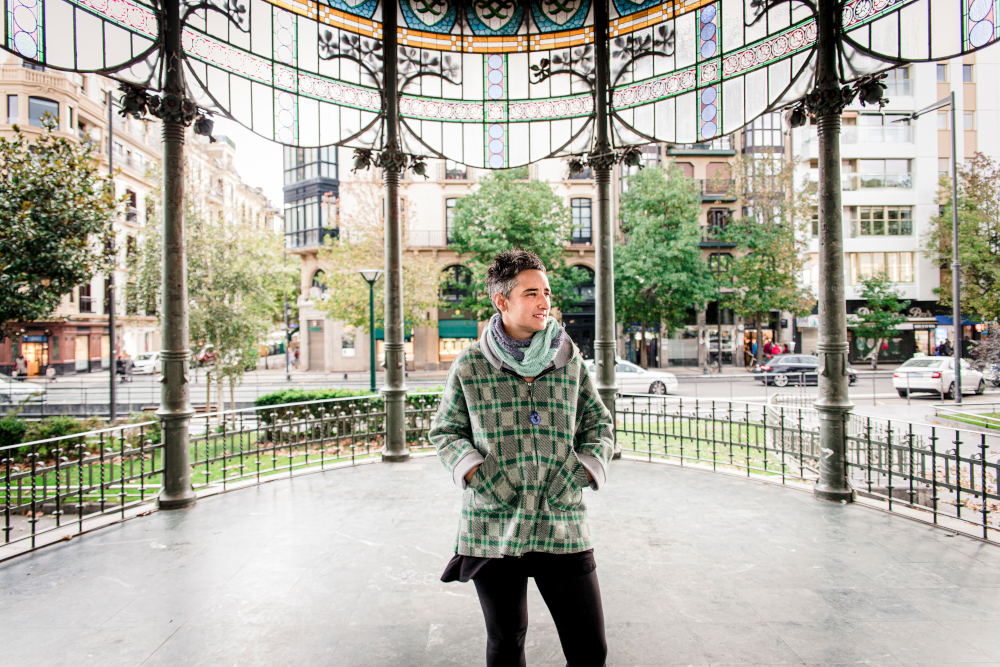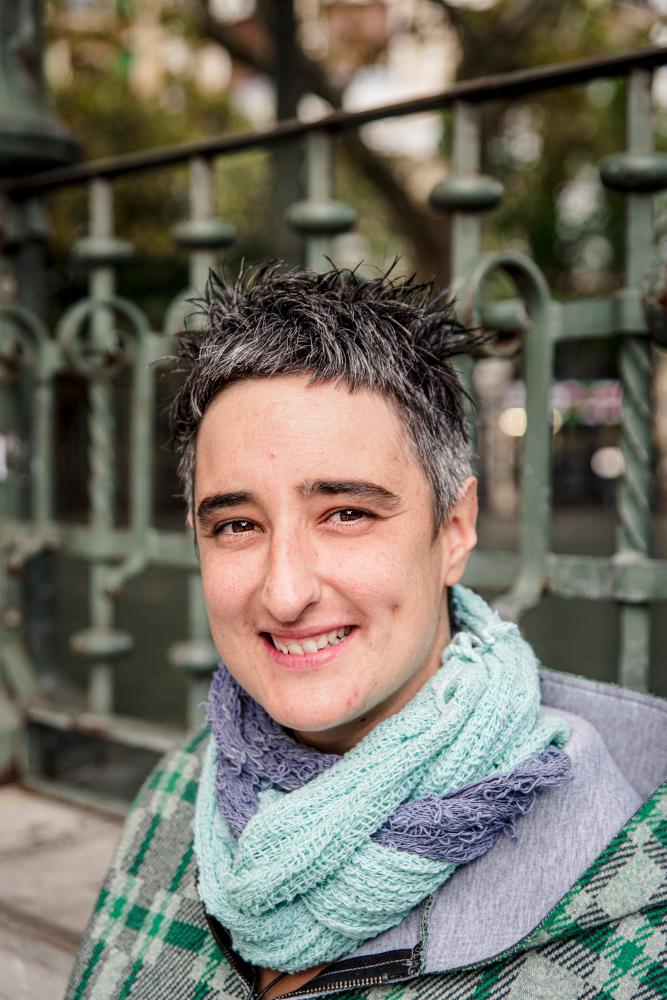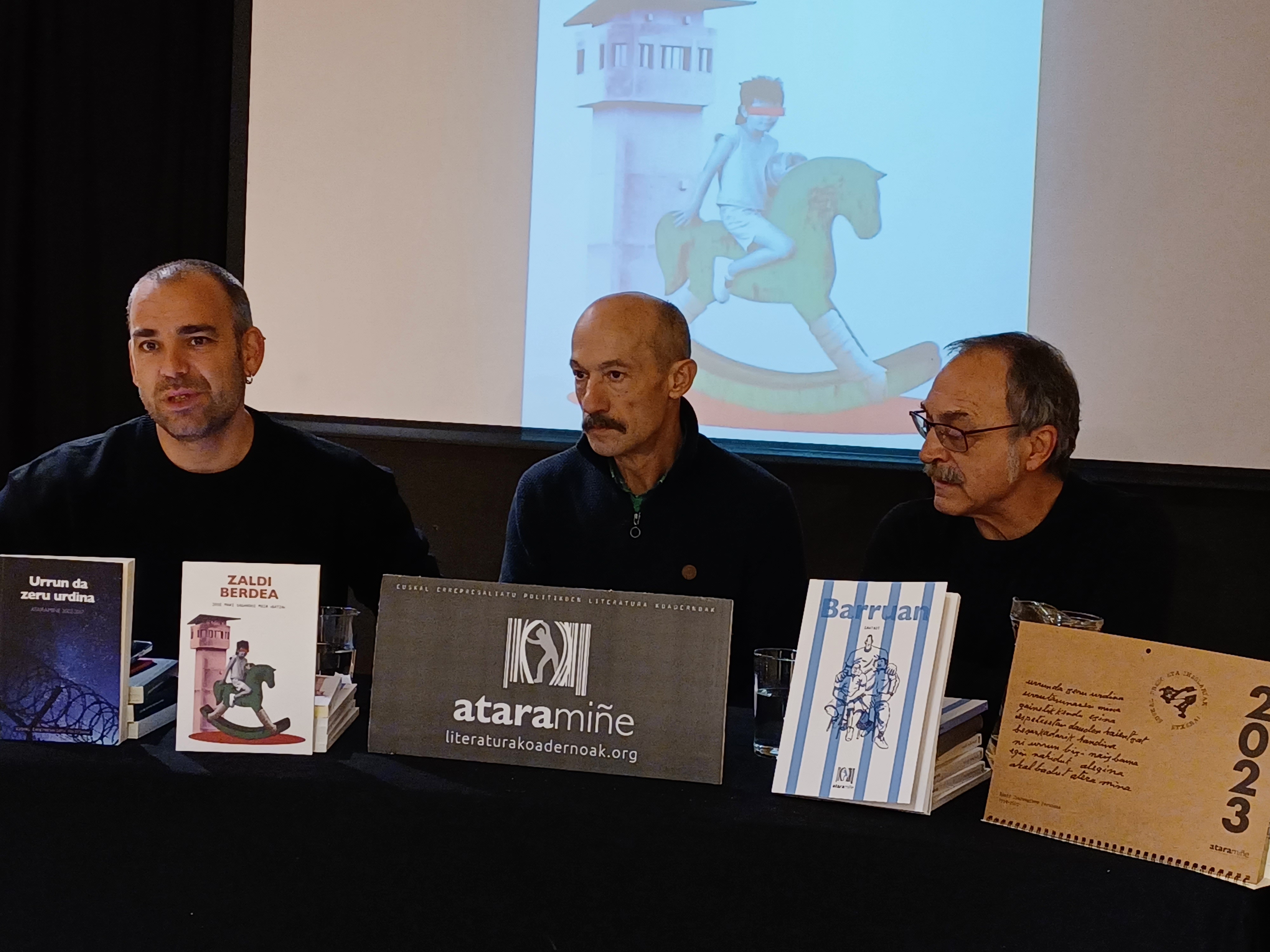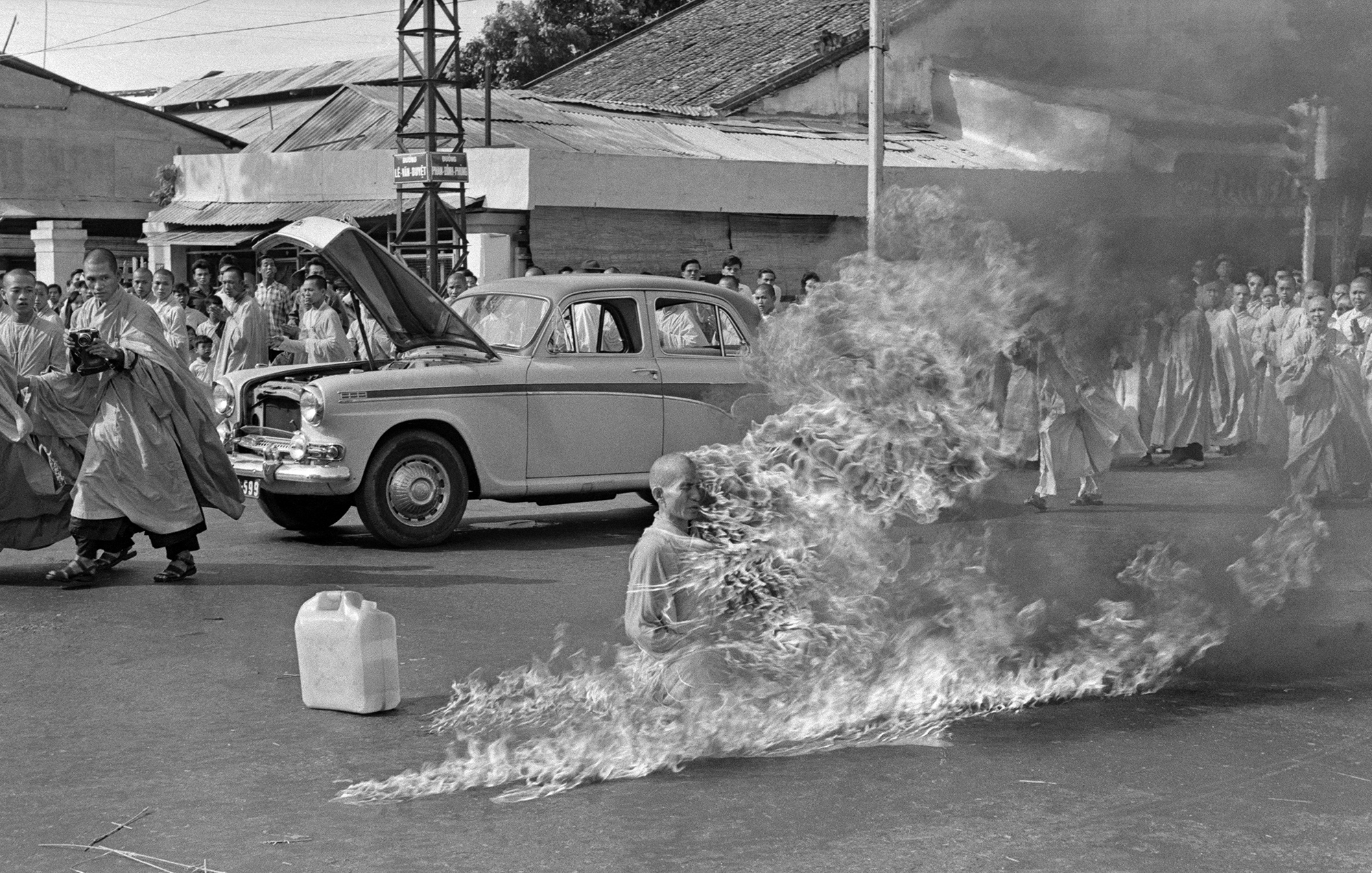“I’ve felt like a child, a teenager and an adult with bags”
- Donostiarra Miren Azkarate Badiola collects testimonies from children of refugees and Basque political deportees who have experienced various situations to publish them in a book. Without any comparative intent, “because the feelings and experiences of children incarcerated and detained are different.” Agustín Azkarate, a father exiled in Cuba for 33 years, returns while listening to interviews and was in transcription. It can be the closure of a cycle and the beginning of another cycle: the cycle of putting in place a father who has been in the shadow for years, “unknown person.”

Your father returns from Cuba when he was collecting the experiences of the children of refugees and Basque political deportees.
That's right. I already had a spine with the subject and a few months ago I started collecting testimonies. It seemed to me that we were invisible, as refugees and deportees have been depicted in black silhouettes for years. No name, no surname. Keeping a father a prisoner or touching in an unknown place that must be kept secret awakens situations and experiences very diferentes.En most of the cases, even though the locals have heard of their location, they have never
been able to tell anyone, of course. These are two incomparable situations and I felt the need to emerge from our own. When the backpacking children's platform was created, I was very happy, because it's an important initiative. We have to see what these children suffer. I thought, "But where are we?" If we don't exist, we're not. Here we are and we are, and we have something to tell.
It has brought together seven situations, has it found common elements among them?
Yes, we all have the same pain and the same spine. I wanted to do an extensive X-ray. In the world of refugees and deportees, there are many realities. I wanted to bring together many places, on the one hand Ipar Euskal Herria, of course, and on the other hand Cuba, Mexico, Venezuela and Cape Verde. In addition, I have another pair before I finish working, because some follow sufriendo.Por example, the case of a fugitive in Switzerland. Your son also has to count. They have all welcomed me warmly. I've felt hungry to talk about it. In them, the feeling of invisibility prevails, the need to belong to something. Furthermore, since the issue has been taboo on the street, in most cases I thought it was also taboo at home. Among the children of the same family, the brothers have not talked about the issue among them either. The testimonies of those in the same house are very different.

His father comes back when he didn't expect him.
When I was born, I was a refugee in Hendaia. At the age of 2, he was imprisoned and when he left the street he escaped to Cuba with fear of being tortured again, at the age of 4. Since then, I have only been able to go and see her five times. At age 6, for the first time, at age 3 for 6 and 28. I too was tortured and arrested, so for ten years I have not been able to. For all these years I have heard “in two years’ time I will be there.” In the latter, however, three weeks earlier we knew that his decision was firm and came. For once it was true. These were very strange weeks. Joy, nervousness and fear were impacted within me. Just in case we couldn't tell anyone, and living back in that silence moved me inside. Now he's here, and we're creating a relationship between us, from scratch. I don't know what it will be, we'll see.
Will you also receive your story in the book?
I had no intention of including my testimony in the book, but as things have happened I have been asked by publishers to do so and I have to acknowledge that it has been very difficult for me. It has been a special solo exercise for homelessness.
Have you had to remember for all these years that you have a father?
This is very complex. What is a parent? Yes, he's my father, I'm proud of my father, but I haven't been by my side. He hasn't participated in my day to day, he's never been in my day to day. We have to know something to touch the feeling that something has been taken away from you, to feel it, and I have not had it, so I have not noticed any fault. My family has been my mother, my brother, my grandmother and my aunt. And then the rest of the refugees, who for me have had the role of father/uncle. So, yes, he is a father, but what is a father? I have her blood, but it's already there. That's my case. But it hasn't been because he wants it. This is a violent situation, which has not been chosen by him. It's very difficult. He's come back, but I don't know that person. At most I've been with him on those travel stretches. And ours is no case of exception, the experiences and panic of this kind are also mentioned a lot in the testimonies I have collected.
Mother... Yes,
the couple, the woman, has stayed at home, responsible for the education and care of children and everything else. All the testimonies united for the book emphasize the figure of the mother. In these cases, mothers have done everything. They are the most forgotten in the story of the political conflict. They certainly need public recognition, and I want to think that they will be done at some point. I've talked about my children, but I want to think there will be someone who will be encouraged to pick up the mothers' story.
Do you know the title of the book?Not quite, but
when I started thinking I realized that I've been a trunk child all my life, I've felt like a child, a teenager, and an adult with bags. And, following the metaphor of children with backpack, because we are all part of the same story, the same occurred to me: "Children with suitcases." Next year, mystery will clear up when work sees light.
many others were born, the political conflict conditioned life on Miren Azkarate Badiola. In addition to being a refugee father, he has also served five years in prison in Spain. “Prison is a great lesson. It turns the scale of values, and when you go out, you see things much clearer. I am very clear about what I want and what I don’t want.” But the smile and illusion have not been lost, despite the incommunication and torture suffered by his father. He's skillful in chatting and even more skillful in counting. “My father’s case was known among law enforcement bodies, my torturers knew him. For nine days, he didn't tell him his name at the police station. They also tried to destroy me with my father’s figure.” Luckily, they didn't.
Euskal errefuxiatuei laguntzeko 1960ko hamarkada amaieran sorturiko Anai Artea elkartearen historia laburbiltzen duen liburua argitaratu du Elkarrek. Txomin Hiriart-Urrutyk egindako ikerketa da eta Joseba Sarrionaindiaren sar hitza ere badu. Liburuaren harira Juan Mari Arregik,... [+]
Asteartean jaso zuen Venezuelako Gobernuaren erabakia. Bere herritartasuna eta 13 urteko bere semearena onartzea eskatuz abiatu zuen gose greba mugagabea abenduaren 3an.
Venezuelan dagoen Asier Guridi Zaloña euskal iheslari politikoak abenduaren 3an gose greba abiatu duela jakinarazi du. Caracas hiriburuko Espainiako kontsuletxearen aurrean dago, bere eskubideak eta 13 urteko bere semearenak aitortuak izan daitezen eskatzeko. 2005ean... [+]

























